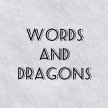Have you ever wondered about why you enjoy a certain genre? Chances are you haven’t. We all just know we like it. You might have identified some genre tropes and conventions that you tend to love.
But, lets be honest, it’s always easier to explain why you hate something. I could spend hours and hours ranting about my least favourite novels and films that pissed me off, and I literally have. Just see my reviews of The Time Traveller’s Wife and Last Christmas. My dislike was so all consuming that my thoughts effortlessly spilled out of me. The reasons I love something are no where near as apparent. I have to search for them, or hope that the answer comes to me in a flash.
I had one of these epiphanies the other day. The specific reason I enjoy reading romance dawned on me, as all the best thoughts do, on a dog walk. The reason I love romance is not because I love a happily ever after narrative or passionate love declarations. It isn’t even because of my favourite relationship dynamics – enemies to lovers, fake dating, and celebrity romances. In fact, why I love a romance has almost nothing to do with the romance.
I love romance novels because, alongside the romance, they are narratives of confused people finding direction.
This is in no way a relatable topic for a twenty-three year old who has just graduated and still lives at home.
The romantic hero is a dream, not because they have Disney Prince hair or charm your socks off. They are dreams because they help the protagonist discover (and often start working towards) her dream life. I too would like a magical man to stand by me as I sort my life out. But, to be honest, I would be more than happy to magically resolve my problems without any male company. The man, the love, and the relationship are far less important to me than reading about someone finding themselves.
Romance novels are the antidote to my favourite sub genre of literary fiction: what I have dubbed the messy 20-something novel. These are novels that typically focus on a woman in her early twenties who does not know what she is doing with her life. She has a mind numbing job to pay the bills, she is probably in a shit relationship (if she is in one), and she is most certainly a self-certified mess. We follow her make bad decision after bad decision and it is incredibly relatable. I can (and will) list my favourite novels in this genre. In fact, expect a definitive list of the best messy 20-something books in a future post.
Romances are the messy 20-something novel with a neater ending. Instead of ending on confusion, anxiety, and uncertainty, these novels end with a message of hope. Even if the characters have not achieved their dreams (typically shown through a flash forward), they are at least taking the first steps towards it. They know their direction and are steering themselves along this road.
This realisation hit me like a brick. I instantly informed all my fellow romance-readers and fellow messy 20-somethings about my epiphany. Yet, this shouldn’t have surprised me. All my favourite romance novels follow a character as they address their mental health issues, start their dream job, accept themselves, or resolve a family conflict. They basically deal with the things they have been purposefully not dealing with. These aspirational romances include (in no particular order):
- The Hating Game by Sally Thorne
- Book Lovers by Emily Henry
- Beach Read by Emily Henry
- The Charm Offensive by Alison Cochran
- Red, White, and Royal Blue By Casey McQuiston
- Mr Wrong Number by Lynn Painter
- The Viscount Who Loved Me by Julia Quinn
- Hook, Line, and Sinker by Tessa Bailey
Romance is basically the push I need. It’s essentially therapy. The happy feeling I get in my stomach is not swooning, it is hope for the future.





